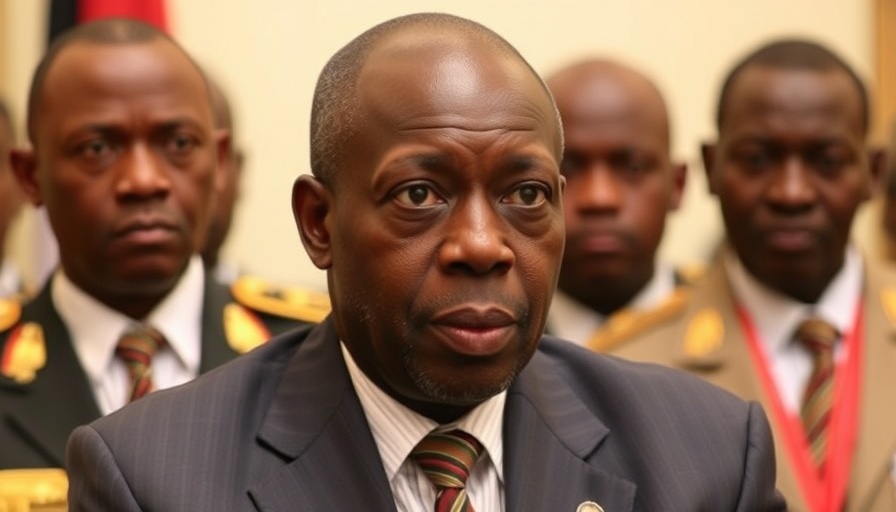
Why Ramadan Abdallah Goc’s Dismissal Signals a Shift in South Sudan
In a dramatic Cabinet reshuffle that echoes the turbulent political landscape of South Sudan, President Salva Kiir has dismissed Foreign Affairs Minister Ramadan Abdallah Goc, a move propelled by underlying tensions within the government. Appointed as a member of parliament following his dismissal, Goc’s abrupt removal after less than two years points to the complexities of governance in this fledgling nation.
The Legal Rights of Political Opposition
Notably, Goc had recently publicly defended the rights of detained officials from the Sudan People's Liberation Movement-in Opposition (SPLM-IO). His assertion that "no one in South Sudan is above the law" was a critical stance within a climate where political accountability often takes a backseat to partisan interests. This brave proclamation comes amid a reshuffle that has left Vice-President Riek Machar under house arrest while a controversial rival faction seeks to claim leadership legitimacy. Such actions by rival factions risk undermining the fragile peace agreement that was signed to stabilize South Sudan.
Diplomatic Tensions with the United States
The political upheaval has also compounded existing diplomatic strains, particularly regarding the deportation of South Sudanese nationals from the United States. The Trump administration’s firm position on deportations has created a diplomatic conundrum. In a recent incident, a Congolese national was deported under circumstances that prompted accusations against the South Sudanese government for delaying his entry to the country. The administration has reacted robustly, threatening a visa revocation affecting South Sudanese passport holders. Goc's involvement in the resolution of this diplomatic dispute exemplifies the delicate balancing act required in international relations for South Sudan.
Implications for Governance and Global Relations
This reshuffle and the legal disputes surrounding it reveal deeper issues regarding governance and state authority in South Sudan. The lack of transparency and the absence of stated reasons for Goc’s dismissal highlight persistent instability and a troubling tendency to prioritize political maneuvering over the rule of law. Such governance issues coupled with diplomatic controversies could have broader implications for South Sudan's role on the African stage and its international partnerships. The global community's gaze will be fixed on how the nation navigates these turbulent waters.
As observers scrutinize South Sudan's political landscape, one key takeaway stands out: the intertwining of domestic politics and international diplomacy remains a vital area of concern for business leaders, policymakers, and scholars alike. The trajectory of South Sudan's governance will ultimately shape its economic prospects and global relationships, making it a focal point for those interested in the African economy and political dynamics.
 Add Row
Add Row  Add
Add 


 Add Row
Add Row  Add
Add 

Write A Comment